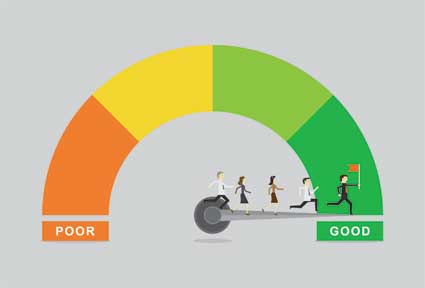Drugs vs. Natural Remedies
-
The Zoloft/Xanax Generation � Tranquilizers of the 21st Century
-
Lingering Side Effects
-
Depression
-
Back to Basics
-
Longer Lasting, Drug-Free Results
At the first sign of a cold or flu, people run to the drugstore to find an over-the-counter remedy, that "magic pill" that will make whatever it is that ails us go away. We take billions of heartburn tablets or antacids to relieve that excess acid in our stomach. And it takes very little to convince a doctor that we might need a prescription for a drug to reduce our anxiety -- drugs like Valium or Xanax, an anti-depressants, or pain relievers with oxycodone in them.
A big part of the problem is our medical system. Doctors make money when they see patients; the more patients they see, the more money they make. It's a simple formula. The problem with this formula is that in order to get to the bottom of a problem that is caused by stress, your doctor needs to spend time with you, getting to know you, finding out what it is that makes you react the way you do to stressful situations. The sad fact is that time is something doctors don't have. In order to make you feel better, they resort more and more frequently to prescribing medication to mask your symptoms. Even worse, this is what we have come to expect when we go to our doctors for help, an instant cure, because we don't have time to be sick or injured; we have too much to do ourselves.
At some point we need to wake up and realize that most of these pills are being prescribed and taken because we have a malfunction in our system. The problem is that while the pills might take away some of the symptoms, they do not remove the cause.
The Zoloft/Xanax Generation � The Tranquilizers of the 21st Century
Anxiety is a very normal response to a stressful situation. Anxiety can help us to cope with challenging situations. But as with all things, when there is too much of something, when our anxiety becomes extreme, it becomes debilitating. According to the National Institute of Mental Health the most common anxiety issues that people seek medical attention for include:
-
Generalized anxiety
-
Obsessive-compulsive disorder
-
Panic disorder
-
Social phobia
-
Post-traumatic stress disorder
You may not know that the most prescribed medications in this country are not antibiotics, which fight disease. Instead the top four medications are Valium and Xanax, which tranquilize us or reduce our anxiety, and drugs that decrease the amount of acid we have in our stomachs, such as Prilosec and Tagamet, with Zantac not far behind. Most acid-reducing drugs are now available over-the-counter because the demand for them has been so high.
But we're still back at square one, aren't we?
Even though medications are easier than ever before to obtain, they are only trying to quell an ever-growing tidal wave of symptoms. They're doing nothing to figure out the source of the problem and manage the problem in a holistic and natural way.
What's at the root of our agitation, anxiety, and acid-filled stomachs?
Stress!
Taking these drugs will only temporarily alleviate our symptoms, but the underlying problem is still not addressed.
Symptoms such as anxiety and heartburn should not be ignored. Those very symptoms are signals from our body that something is wrong or out of balance. In a leading stress-reduction program, patients are given a list of 110 symptoms to check off prior to beginning a stress-reduction program. Most people indicate that they are suffering from at least 25 different symptoms of stress. That is nearly 25 percent! That is a lot of suffering. By the time they leave the stress reduction program, they've cut the number of symptoms they experience by about half.
It could be argued that people experience a temporary reduction in their symptoms because of having gone through a stress reduction program. However, the directors of the stress clinic had been under a physician's care for many years for those very same conditions, and to have them disappear after being trained on how to control their stress is not insignificant.
The key to their improvement is they are being empowered to do something positive for their health. You will not be a passive partner here. You will be intimately involved in evaluating your own stress symptoms and looking for ways to reduce them.
Once you learn how to control many of the stressors in your life, you have tools you can use forever. You will be handling the problem at the root, rather than trying to mask the symptoms.
Let's go back to those commercials promoting the latest and greatest drug for those pesky problems you have. Do you ever listen to the list of problems and side effects those drugs can have on your system?
What is a side effect?
A side effect is an undesirable secondary effect that occurs while taking the prescribed dosage of medication needed for the desired therapeutic effect. Side effects may vary with each person, depending on the individual's disease state, age, weight, gender, and ethnicity.
Here are some of the most noted side effects for the most-prescribed medications:
-
Xanax � Common side effects: changes in appetite, constipation, decreased sexual desire or ability, diarrhea, dizziness, drowsiness, dry mouth, light-headedness, nausea, fatigue, weight changes. Severe side effects requiring immediate medical attention: severe allergic reactions, behavior changes, blurred vision, burning, numbness, tingling, chest pain, confusion, dark urine, decreased coordination, fainting, changing heartbeat, hallucinations, loss of balance, loss of muscle control, memory problems, muscle twitching, mood changes, red, swollen, blistered or peeling skin, shortness of breath, trouble breathing, suicidal thoughts or actions.
-
Valium � Common side effects: drowsiness, lack of coordination, muscle weakness and tiredness. Severe side effects: severe allergic reactions, confusion, difficulty breathing, fainting, fever, chills, persistent sore throat, hallucinations, inability to control urination, memory problems or memory loss, new or worsening mental or mood changes like agitation or aggressiveness, slurred speech, tremor, insomnia, blurred or double vision, yellowing of the skin or eyes.
-
Prilosec � Common side effects: diarrhea, nausea, vomiting, headaches, rash, and dizziness. More severe side effects include nervousness, abnormal heartbeat, muscle pain, weakness, leg cramps, and water retention.
-
Tagamet � Common side effects: headache, dizziness, drowsiness, or diarrhea. More serious side effects: mental/mood changes like agitation, confusion, depression or hallucinations, trouble urinating, muscle/joint pain, decreased sexual ability, easy bruising/bleeding, signs of infection, change in heartbeat, unusual tiredness, nausea vomiting, severe stomach/abdominal pain, dark urine or serious allergic reaction.
Other common medications are prescribed for conditions such as IBS (irritable bowel syndrome), which can be linked to stress. One patient finally sought help for her almost uncontrollable IBS symptoms and was given Levsinex. At first she was greatly relieved when she took the medication because it managed her IBS symptoms. Then one morning she awoke and couldn't focus her eyes. She couldn't read, she couldn't drive. These symptoms terrified her. She called her sister who was a nurse. The sister looked up the medication and one of the side effects was "increased ocular tension resulting in severely blurred vision." Deciding that she would rather figure out another way to deal with her IBS, the patient stopped taking the medication and within 24 hours her vision was restored to normal.
Granted, not every person is going to experience those side effects, but do you know all the side effects of all the prescriptions you're taking? It is time for you to start taking control of your health, and that may include asking your doctor exactly why you are taking certain medications, and pressing your doctor even further to see if there are any more natural alternatives.
Medicine in the Western world is sometimes driven by the drug companies. Drug manufacturers are a multi-billion dollar industry. It is much better for their bottom line if they can get as many patients as they can to take a pill that will either mask or subdue a symptom, but won't necessarily cure the patient. There is no profit in curing people.
Think about that! No profit for curing people!
There are a few things wrong with our medical system, but this has to be its biggest flaw.
There is much discussion about depression these days. Anti-depressants are one of the most highly-prescribed medications, right along with tranquilizers and anti-anxiety medications. When a person faces unavoidable stress over very long periods of time, that individual is now faced not only with the normal everyday stressors, but with additional stress brought about perhaps by caring for an elderly parent who is chronically ill, or for a disabled child.
Consider how your life might change if you added this kind of chronic stress to your life on top of your normal "dose" of stress. Or, perhaps you are already facing a long-term unavoidable stressor. What steps are you taking to deal with adapting to this situation?
Most people never consider that they need adequate short-term and long-term coping mechanisms for these situations. Most of the time, we just run right into them, and embrace them because they "belong" to us. Unfortunately, these daily pressures can grow to the point where you may begin to experience feelings of anger and irritability, some of the first signs that your coping mechanisms are failing you.
For a person who is living with such a constant state of hyperarousal with no power or control over the situation, this can lead to feelings of helplessness and hopelessness. The body is getting burned out. It cannot stay on "high alert" for extended periods of time, and the opposite reaction begins to set in.
Not all depression is caused by excessive amounts of stress, but many patients find great relief when they learn techniques that help them to manage or even conquer their reaction and response to stress. For these patients, taking anti-depressants will negatively impact their overall quality of life because depression is not the causative problem; it is only a symptom.
Note: For those who suffer from true clinical depression, anti-depressants and ongoing supportive therapy are an excellent course of treatment. Following many of the suggestions learned in this article, depression patients often find that they enjoy greater control over their life and their reactions to life situations. Patients diagnosed with depression are advised to discuss any additional interventions they wish to incorporate into their lives with their physician or psychiatrist.
Back to Basics
To start you on your journey, it's time for you to take a good close look at your personal health. We are not asking you to throw away all your medications; many of them will still be necessary until you manage to get your stress under control. But, as you learn to manage some of your more major stress symptoms, your doctor will see that you may not have to take your blood pressure medications. Perhaps your acid reflux will stop and you will only be taking acid-reducers on a very occasional basis.
In order to change the course of how we treat conditions like stress in this country, it us up to each individual to take charge of their own health. Until we do, everyone loses money because of stress, specifically self-employed people who don't get paid if they don't work, employers who have to pay for many sick days for employees who are stressed, and insurance companies continue to lose money managing stress-related illnesses causing a dangerous upward spiral of higher and higher insurance premiums for lower standards of care.
Some of you may have a chronic pain condition, or even have been diagnosed with a disease for which there is no cure.
Learning to relax will improve the quality of your life. Very few people would deny that they desire an improved quality of life. Learning to relax is getting back to the basics. It will help you to become tuned in to your body as it is today. You will learn to accept everything about your body, rather than rejecting it because it has somehow failed you.



























